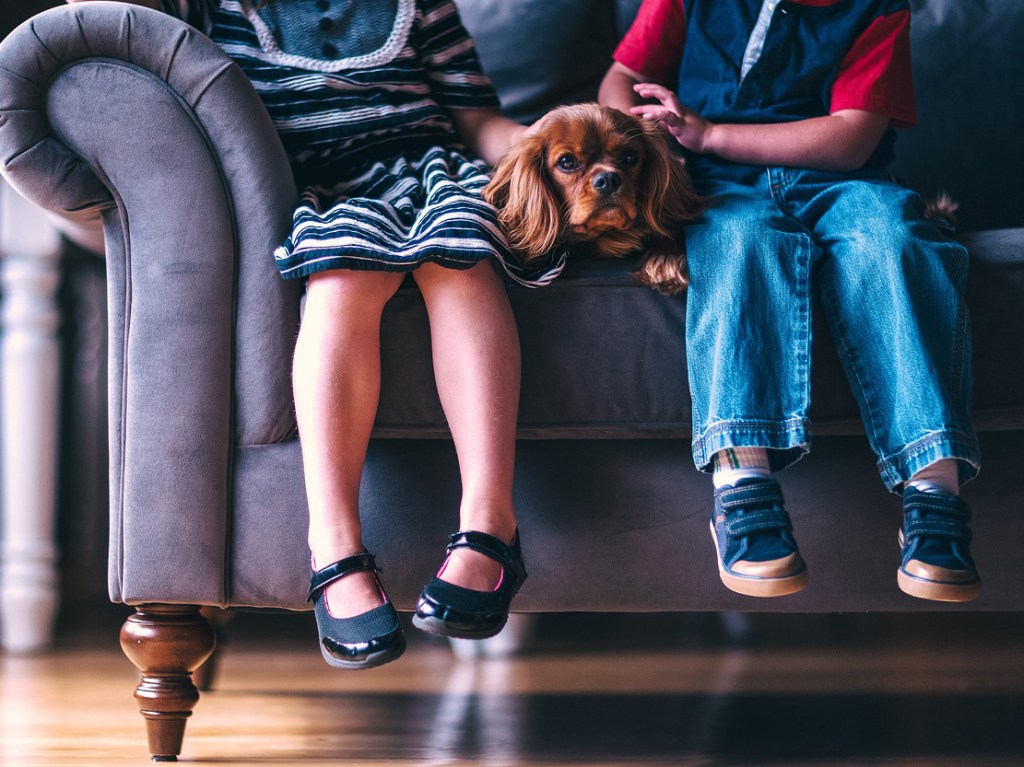Pet Talk: Introducing your pets to new guests
Published 12:20 am Wednesday, December 29, 2021

- Courtesy photo Dr. Lori Teller, a clinical associate professor at the Texas A&M College of Veterinary Medicine & Biomedical Sciences, offers some guidance on how to introduce pets to new guests.
|
Getting your Trinity Audio player ready...
|
The holiday season is a great time to invite new and old friends, alike, to join in the festivities. But introducing these guests to your pets has the potential to be either an exciting playtime or stressful evening for them.
Dr. Lori Teller, a clinical associate professor at the Texas A&M College of Veterinary Medicine & Biomedical Sciences, offers some guidance on how to introduce pets to new guests in hopes of keeping the holidays enjoyable for everyone.
“Many dogs and cats may be distressed when there are changes to their environment,” Teller said. “This can be especially apparent when there are guests in your home.”
Typically, distressed pets will try to find a place to hide. This may be another room, under the bed, or in a kennel.
“Pets that can’t find a safe place to disappear may instead become reactive—they could hiss, growl, or even scratch or bite,” Teller said.
Another telltale sign some animals will exhibit under stress is a change in body posture—tail tucked, ears down, dilated pupils, or hunched over; some may even urinate on the floor.
While new people can be frightening for some animals, not all pets will be hesitant around guests.
“Social animals may be very comfortable greeting each guest as they arrive, whereas others may prefer to join the party once the initial excitement has dissipated and the energy level in the room has stabilized,” Teller said.
“Ideally, pets should be allowed to approach the guest when the pet feels comfortable doing so,” she said. “The guest should be calm, move slowly, and not bend over the pet.”
Similar to an introductory handshake, owners can have their guests extend a closed hand or fist for the pet to sniff. They can also try feeding the pet their favorite treat as a peace offering.
As new people arrive, energetic dogs may have a tendency to jump on guests. If this occurs, guests should turn around and move away from the dog.
“It is never too soon to start training a dog not to jump on people,” Teller said. “If the dog knows the word sit, this can be used as a substitute behavior, but it will only work if the owner is consistent about reinforcing it.”
Dogs with a history of jumping should either be left in another room or kept on a leash as a preventative measure.
Alongside new guests may also come new younger friends, such as infants or toddlers. Owners should take particular precautions when younger friends come around their animals for the first time.
“If your pet is not used to being around children, especially young ones, it may be best to save introductions for a time when they can be done slowly and in a calm environment,” Teller said.
This can be for the pets’ benefit as much as it is for their human counterpart. Some animals may be spooked by kids who tend to run around and make quick, unpredictable movements, while others may want to join in the fun.
“Young children, especially when excited, may pull an animal’s ears or tail, causing pain and potentially leading to injury,” Teller said.
It is important that this type of play is supervised, as pets also may accidently knock down the child or scratch them when playing.
“If an owner has concerns that their pet may be anxious around guests, they should have a conversation with their veterinarian about some short-term medications to manage their anxiety,” Teller said.
The holidays are a great time for friends and family to come together. Keeping pets’ emotions in mind as their daily routines change is key to helping keep this season the most wonderful time of the year for owners, guests, and our furry friends.
Pet Talk is a service of the College of Veterinary Medicine & Biomedical Sciences, Texas A&M University. Stories can be viewed on the web at vetmed.tamu.edu/news/pet-talk. Suggestions for future topics may be directed to editor@cvm.tamu.edu.






